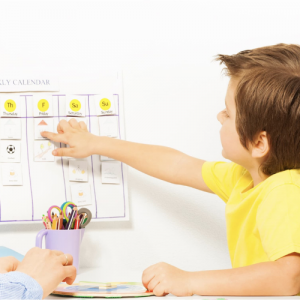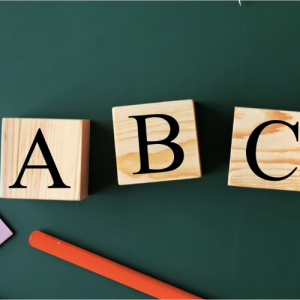Do you ever wonder why certain children who display remarkable skills in one area exhibit difficulties with performing routine tasks like brushing teeth or putting away toys? This might possibly be due to delays with what we call executive functioning skills (EF). Executive functioning skills are a set of abilities that are necessary for a child to manage himself in an organized manner to reach a particular goal. We do not know the order in which each EF skill develops (Gibb et al., 2021). However, it is apparent that these processes impact and influence almost every area of a child’s life including communication. Executive functioning and language skills appear very early on in a child’s development (Kapa & Erikson, 2020). These two areas work together in ways that are mutually beneficial. Therefore, strengthening your child’s language skills will have a positive impact on his executive functioning skills and vice versa.
Refer below for a brief description of each skill:
Attentional Control: ability to shift and regulate focus.
Working Memory: allows for the temporary storage and retrieval of memory to perform a task.
Inhibition: ability to control urges and impulses.
Cognitive Shifting: ability to change course or adapt according to new demands.
Planning: ability to choose specific actions to reach a goal.

You can work with your child to target both executive functioning skills and communication using the following activities:
Toddlers (0-2 years)
- Work on getting your child to hum or sing along to nursery rhymes and songs.
- Play peek-a-boo and pat-a-cake.
- Engage your child in play using cause and effect toys (e.g., rattles, pop-up toys, music toys).
- Teach your child how to imitate your actions (e.g., clapping, blowing a kiss, smiling).
- Work on saying animal sounds (e.g., moo, baa, neigh).
Preschoolers (3-5 years)
- Help your child sort cards by color and shape
- Present an enticing treat to your child but have him wait to eat it
- Practice turn-taking and sharing toys
- Copy and build a structure using blocks
- Work on getting your child to name the opposite given a picture (e.g., what is the opposite of big? tell me the opposite of happy)
- Have your child work on a simple art project or other types of construction activities (e.g., building a cardboard house) with a peer
The development of language and executive functioning skills are intertwined. By targeting one of these domains, you will also be stimulating and nurturing the other. As a result, engaging in these simple activities will help your child grow in the areas of language and executive function. If you would like to ask our expert about the topic, get in touch with us. FFollow us on Facebook, Instagram, LinkedIn, and Twitter to stay on top of our latest updates.
References:
Gibb, R., Coelho, L., Van Rootselaar, N. A., Halliwell, C., MacKinnon, M., Plomp, I., & R. Gonzalez, C. L. (2021, December 29). Promoting Executive Function Skills in Preschoolers Using a Play-Based Program. PubMed Central (PMC). https://doi.org/10.3389/fpsyg.2021.720225
Kapa, L. L., & Erikson, J. A. (2020, July 17). The Relationship Between Word Learning and Executive Function in Preschoolers With and Without Developmental Language Disorder. Journal of Speech, Language, and Hearing Research, 63(7), 2293–2307. https://doi.org/10.1044/2020_jslhr-19-00342






Deja Un Comentario